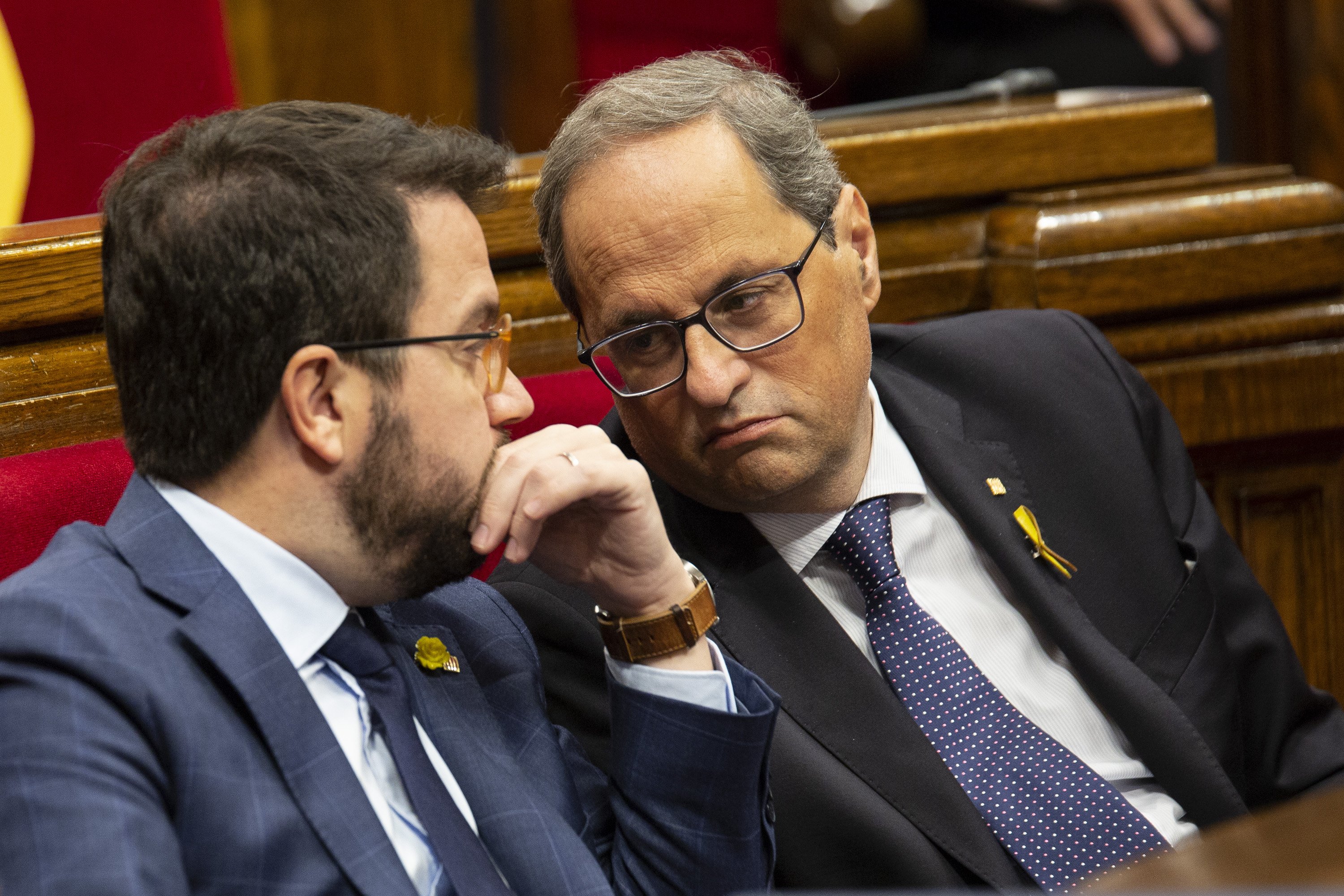Catalan president Quim Torra appeared in court today charged with disobedience. If convicted, he could be sentenced to a ban from holding public office. What would that mean for Catalonia? Who would become president? How long could it all take? The answers are found in the Catalan presidency law (link in Catalan).
The trial, in the High Court of Justice of Catalonia, is the first time in Spain's democratic history that a president of Catalonia has stood trial whilst in office as the cases against presidents Mas and Puigdemont took place after they had stepped down.
The line of succession
According to the law cited above, one of the reasons a president's term can end is with a "final penal sentence which includes a ban from exercising public office". At that point, they are "temporarily substituted" by the vice-president. In this case, that would be Pere Aragonès (ERC). Such a replacement wouldn't be allowed to nominate or fire ministers, nor call an early election.
Immediately following the start of a temporary Aragonès presidency in such circumstances, the process for the Catalan Parliament to elect a new president would start. If no candidate is successfully invested to the office within two months, an election would be automatically called.
When could this happen?
The charge against Torra is one of disobedience, for initially not having removed a banner from the balcony of the Catalan government palace during campaigning for April's general election. A relatively simple case, the hearings started and ended today. Following the 2014 unofficial independence referendum, president Mas, with a handful of his ministers, also faced trial for disobedience. That time, the court took little more than a month to hand down its verdict. As this case is less complex, the judges are expected to reach a verdict even quicker than that.
That said, that verdict, whatever it may be, won't be the end of the case, as it can be appealed to the Supreme Court in Madrid. In general, they tend to take about half a year to consider appeals, depending on the volume of work they have. The two-year delay on the appeal in Mas's case was an anomaly and not expected to be repeated this time if that's the path this case takes.

